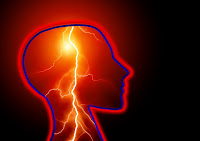
Empirical and clinical evidence reveals the existence of a transcendental inner person operating the body. Why do we say “transcendental?”
If the inner person were not transcendental to the physical plane we would be able to see it. We would be able to measure it with a physical approximation.
As it is, we can only perceive it in the animation of the body. We can only perceive it through the emotions that are expressed through the body. We can only perceive it in the decision-making and objectives that push the body to act one way or another.
It is, in fact, the inner person's transcendental nature that has caused modern science to ignore the inner person's existence.
The source of personality
The inner person is the source of personality and life, which the body expresses through physical activity over its lifetime. There is energy, personality and movement in a living body while the body is alive. In contrast, after the death of the body, there is a lack of movement, personality and energy. This means that the source of the movement, personality and energy the body displays leaves the body at the time of death.Furthermore, contrary to the proposals of some, each personality is unique and different from other personalities. Each inner person is an independent, individual being. We are not, despite the seductiveness of such a statement, “all one.”
An ancient teaching
Consistent with the ancient teachings of all major religions, the ancient philosophers, and the vast majority of western scientists prior to the emergence of the accidental chemical life theory, we can now scientifically and empirically document the existence of a unique individual person, transcendental to the gross physical plane.Plato, Socrates and most of the ancient Greek philosophers referred to this inner person as the soul. The translation is thought to originate with Aristotle, who described the self with the Latin telos.
Rather than being a vague spirit-like organ, telos translates to a person with purpose, will, and character. In this context, we would emphasize that each of us does not possess a soul: each of us is a soul. Each of us is an individual soul who is accessing the physical plane through a temporary physical body.
This understanding was clarified by the fifteenth-century physician, Paracelsus (Dr. Theophrastus Aureolus Bombastus von Hohenheim) who made the following statement:
“The power to see does not come from the eye, the power to hear does not come from the ear, nor the power to feel from the nerves; but it is the spirit of man that sees through the eye, hears with the ear, and feels by means of the nerves. Wisdom and reason and thought are not contained in the brain, but belong to the invisible spirit which feels through the heart and thinks by means of the brain.”